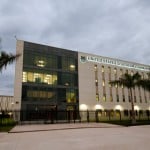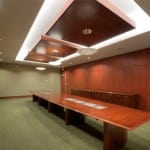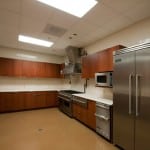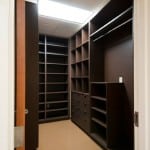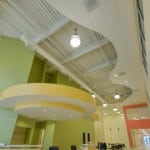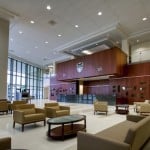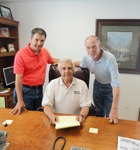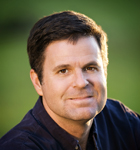At a Glance
Location
Northport, FL
Founded
1978
Employees
80
Specialty
Interior architectural casework
Annual Sales
$15 million
Established in 1978, Adams Group has more than 30 years experience as a manufacturer and installer of interior architectural casework for the medical, educational, government, hospitality, nonprofit, and professional sectors. At the outset, the firm was small and focused on local homeowners and lighter commercial projects, but by the early 1990s it had grown to provide only commercial services to general contractors. Now, in the new century, the firm is lead by Ethan Adams, CEO; Jonathan Adams, COO; Ben Adams Sr., project manager; and Joe West, director of business development/marketing—and with their energetic guidance the 80-member company has grown from $4 million in revenue at the turn of the century to more than $15 million at the end of 2011. Much of this has to do with the firm’s diversity of service.
“We don’t just do cabinets and countertops,” West says. And getting this point across was the primary goal when Adams Group set out on a marketing blitz in 2008, blanketing the southeastern United States and parts of the Midwest with advertising.
Top 5 Green Casework Materials
1. FSC-certified wood comes from registered forests, and it helps a structure obtain a LEED MR 7 credit.
2. NAUF particle board, manufactured from post-industrial or pre-consumer recycled wood fiber with no added urea formaldehyde resin, qualifies as part of the LEED MR 4 credit for recycled content.
3. 3form 100 Percent is an architectural resin panel made from 100% post-consumer recycled high-density polyethylene. With more than 1,000 milk bottles going into each panel, it can help projects earn up to 2 LEED credits (4.1 & 4.2) for recycled content.
4. IceStone is manufactured from recycled bottles and concrete. It can earn LEED MR 4.1, 4.2, 5.1, and 5.2 credits.
5. Specialty veneers—such as eucalyptus, mahogany, teak, walnut, tigerwood, ash, and others—create timeless finishes for designers and owners.
“Every piece we build is considered a custom piece to meet the specs of that job and design criteria,” Ben says. “Oftentimes, people think they go through a catalog and pick a cabinet and they’re done. But their jaws drop when they walk through our facility and realize the time and effort that goes into every piece.”
Adams Group is a certified dealer of Division 12 wood and stainless-steel scientific casework. This makes the company a single-source provider for virtually all sorts of clients, a distinction most competitors cannot match. And, by way of accreditations, Adams Group has been AWI-certified (Architectural Woodwork Institute) since 1996 as well as LEED-accredited by the USGBC. “We also have FSC Chain of Custody certification,” Ethan says. This designation allows for credible tracking of wood products from the forest, through all successive stages of the production process, and finally into the hands of retailers and consumers.
One of the company’s LEED projects, the US Southern Command Headquarters, located in Doral, Florida, won the 2010 Eagle Award from the Associated Builders and Contractors and consisted of unique hardwood veneers, custom-manufactured wall and ceiling panels, officers’ desks, and much more. A second noteworthy project is the Children’s Hospital of Alabama, located in Birmingham. This 14-story new-construction project, scheduled for completion back in December 2011 at the time of print, contains more than $6 million in millwork and casework and has the distinction of being QCP-certified (Quality Certified Program) by the AWI.
“We’ve stayed on the cutting edge of sustainability,” Jon says. But the company is always looking for innovative ways to increase its green footprint, too. This is evidenced by the firm’s implementation of On-Screen Takeoff software for its estimating department and the introduction of Apple iPads for scope reviews, field measuring, and video conferencing. By harnessing the power of technology, Adams Group has been able to drastically reduce blueprint printing and save the company more than $10,000 per year in reproduction costs—all while gaining ease and accessibility.
Regarding his team, Jon says, “We have our ear to the ground; we’re constantly keeping in tune with what’s going on in the industry.” For Jon and his firm, it’s necessary to adjust to the market, but it is equally important to maintain consistent quality and customer service. This has been, and will continue to be, Adams Group’s sustaining motivation for years to come. ABQ
